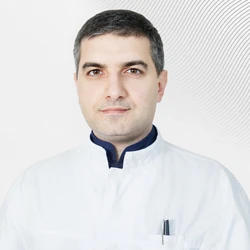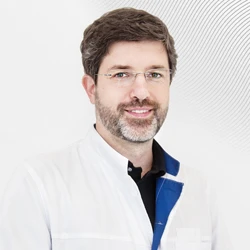Intensive care patients are patients with serious illnesses and injuries after complex surgical procedures and anesthesia. And if most of us know what happens in hospital rooms, then intensive care and intensive care are usually always closed to prying eyes. Visits to the intensive care unit are usually prohibited. However, any of us is sure that when a person is in critical condition, it is very important to have a loved one nearby.
The head of the Intensive care Unit (ICU) tells about visiting patients with relatives and friends EMC Elena Aleshchenko:
Why visit ICU patients?
In fact, a patient in the ICU rarely needs the presence of relatives. But for many people, it is very important to make sure that everything is okay with a loved one, to be with them for at least a minute, and we understand this perfectly well. After anesthesia and surgery, the patient does not need additional care from relatives: he is fully provided by the medical staff of the department. Moreover, most people cannot always adequately perceive the appearance of a loved one who is connected via wires and "tubes" to devices and monitors, and nurses are constantly scurrying around him.
It should be understood that a person who wants to visit a patient in the ICU must be prepared. Before allowing a visit, we talk in detail with relatives so that they correctly perceive everything that is happening with their loved one - of course, they have questions. Admittedly, we manage to find a common language with most of the visitors. Then, being in the ICU, they do not interfere with the treatment process. But in fact, the best time to see your loved ones is when the patient is close to recovery and ready to be transferred to a hospital.
However, relatives should keep in mind that the most important thing for us is the patient's opinion about visits to both the ICU and the hospital. We also follow the patient's wishes about who can be provided with information about his health status, which are recorded in the inpatient's medical record.
How should visits to the NICU be organized?
Intensive care is a department where there is a special sanitary and epidemiological regime dictated primarily by the interests of patients. We do not allow you to enter the department in outerwear and outdoor shoes. We will ask you to change into disposable shoe covers and a bathrobe.
When is the best time to go to the ICU?
Of course, all visits to the ICU must be coordinated with the doctors and the head of the department, and, of course, the main thing is the patient's desire. Intensive therapy is also a treatment, but it is many times more active, in simple terms, and it is aimed at restoring vital functions (respiration, blood circulation, metabolism) disrupted as a result of surgery, anesthesia, trauma, or serious illness. There is a lot of sophisticated equipment that monitors the condition of individual organs and systems and supports the vital functions of the body. In addition, we have a lot of invasive procedures, so the doctor will tell you the most convenient time to visit the patient. We are always in touch with the relatives and friends of our patients.
How much time can a visitor spend in the ICU?
If you visit someone in the ICU, you need to understand that not only your relative is here, but also other patients. Everything that happens here with the patient takes place in the presence of many people - the medical staff and the patients themselves, so you need to be prepared for the fact that you will witness not only medical events, but also meals, hygiene procedures, and toilets. In our department, it is possible to mark the area around the patient's bed with a screen, which allows you to create some personal space. However, this restricts free access to the patient and may prevent medical staff from providing the necessary care, so we set the number of visitors in advance and ask you not to stay too long in the department.
How long can a patient stay in the ICU?
The more severe the patient's condition, the longer he stays in the ICU. We need a certain period of observation, monitoring of vital signs, round-the-clock medical and nursing posts.
For simple surgical procedures, we monitor the patient from one to several hours, for large operations - a day or more, and transfer him to the hospital only after complete stabilization of the function of organs and systems. If the patient's condition requires intensive therapy and replacement of vital functions, he remains in the ICU until full recovery. It can be a lengthy process. But we explain to the patient (as much as possible) and his relatives that there is no need to force events, there is no need to rush back to the hospital, because intensive care is carried out in the ICU. We need to make sure that nothing threatens our lives.
The ideal situation
There is no "Do not enter" or "No trespassing" sign on the doors of our department and there never will be. The doors of all branches in the EMC are open to visitors (except for the operating unit, which is sterile). However, we ask you to adhere to the time of visits or coordinate your visits with the doctors of our department. After all, we have one goal – to help sick people in a critical situation. It's not easy, let's try to combine and coordinate our efforts.
Was this information helpful?
Questions and answers
How to stop dreaming?
Can you tell me if there are any medications that stop a person dreaming? I have been dreaming constantly for a long time, and the dreams are always vivid and emotionally charged. I wake up tired, not wanting to do anything, and I feel only lethargy and apathy. I live in another city.
We have all the tools for an accurate, comprehensive diagnosis, and medical treatment of such conditions, as well as psychosocial rehabilitation, which is critical for returning to an active lifestyle. The support program includes modern methods of diagnosis, regular professorial meetings, and comprehensive
psychological and neurocognitive support. Unfortunately, all the necessary diagnostic and therapeutic interventions can only be done with the patient being present at the Clinic. We are ready to welcome you to the EMC. Inpatient and outpatient psychiatry clinics operate within the multidisciplinary hospital, which creates the most comfortable conditions for patients.
...more 
Rivkina Natalya
09 November 2015
Baby teeth - treat or not?
Baby teeth do not need to be treated, because they will drop out in any case - is it true?
If the teeth are not cleaned properly white carious spots will appear underneath the soft plaque. This initial stage of decay is reversible: with proper hygiene the stain will gradually fade. The next stage is when the defect appears: the integrity of the enamel (the outer shell of the tooth ) is broken and a
cavity appears in the tooth . From this moment caries begins to develop more rapidly since the dentin (the hard tissue of the tooth located under the enamel) is less dense than enamel, and it becomes difficult to clean the teeth properly.
If microorganisms get into the cavity of the tooth where the nerve passes, this will cause pulpitis - inflammation of the pulp of the tooth (the pulp consists of blood vessels and nerves), which may be accompanied by pain, but in the milk teeth is usually asymptomatic.
Pain may occur later, when the nerve has died completely and infection occurs outside the tooth - in the bone. In addition to pain, pulpitis is sometimes accompanied by swelling of the gums, fistulas (channels between the foci of the infection and the gum) and loose teeth .
The pathological process - from the appearance of a white spot to the development of inflammation outside of the tooth root - can be fast and take a few months or last for years, depending on many factors.
To avoid problems with your child’s teeth , you should visit the paediatric dentist regularly. The first appointment with the dentist should be when the child is 1.5 years old. Following on from this there should be regular check-ups every 6 months, or more frequently as directed by the doctor.
...more
Diagnosed infertility - what to do?
I’m 27 years old, diagnosed infertility since 5 years ago, tubal factor and only one working ovary. Have gone through 3 tries of in vitro fertilization, one was stimulated, had no response, in all 3 cases I had only one oocyte. AMH 0,91. Do you think I have a chance for a pregnancy with my own oocyte? Sperm quality
is good.
...more
Yes, of course, you should fight for your oocytes. There is a variety of minimal stimulations: modified cycles, natural cycles etc. If these methods don’t work, so we will think about donor cells. But you must definitely give your ovaries a chance.
Severe cervical dysplasia
I have a transplanted kidney and I was recently found to have severe cervical dysplasia. The biopsy results are not yet back, but the physician says I must have my uterus and cervix removed. My question is: Can I have the operation in your clinic?
For severe cervical dysplasia, usually cervical conization is sufficient. If you have no plans for reproduction, or you already have children, then theoretically you can discuss having a laparoscopic removal of the uterus and cervix, but these decisions should not be made through correspondence. If you have a
referral for an operation in the city where you live, and have the opportunity to come to Moscow, come for a free consultation using "Second Opinion" promotion. If necessary, we can quickly provide operative treatment at a discount.
...more 
Vladimir Nosov
09 November 2015
Emergency's Working Hours
What are your hours?
We are open seven days a week, 24 hours a day, 365 days a year.






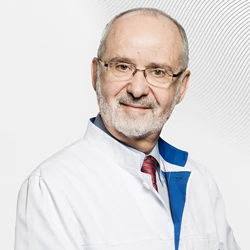

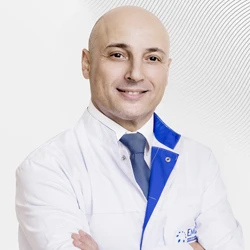

.webp)
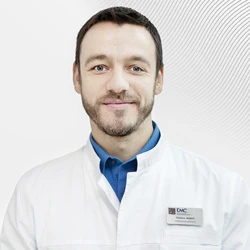
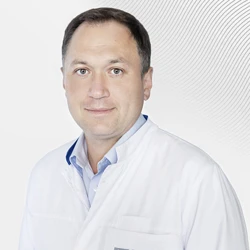
.webp)


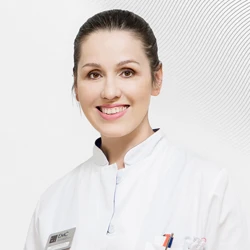

.webp)

.webp)


